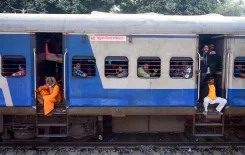How Has Assam’s ‘Golden Hour’ Initiative Saved Over 2,650 Road Accident Victims?

Synopsis
Key Takeaways
- The 'Golden Hour' initiative has provided cashless treatment to over 2,650 victims since May 30, 2022.
- It covers treatment costs of up to Rs 1.5 lakh for seven days.
- Immediate medical care during the first hour after an accident is crucial for survival.
- The initiative has been praised by healthcare professionals and advocates.
- Concerns about long-term sustainability and road safety measures have been raised.
Guwahati, July 1 (NationPress) The Chief Minister of Assam, Himanta Biswa Sarma, announced on Tuesday that the state’s ‘Golden Hour’ emergency care initiative has successfully provided cashless treatment to 2,657 road accident victims since its inception on May 30 of the previous year.
This scheme, designed to save lives through prompt medical assistance, covers treatment expenses of up to Rs 1.5 lakh for a duration of seven days across 46 empanelled hospitals throughout Assam.
Accident victims benefit from cashless trauma care, relieving them of financial stress, as the government takes care of the hospital fees directly.
To date, Rs 2.7 crore has been allocated for medical treatments, ensuring that timely assistance is available in every district. The program emphasizes the essential ‘Golden Hour’—the first 60 minutes post-accident—when immediate medical care can dramatically enhance survival chances.
In a post on X, CM Sarma underscored the scheme’s significance, stating, “Utilising the Golden Hour to Save Lives!”
He pointed out that this initiative is a crucial part of Assam’s larger mission to enhance emergency healthcare services and decrease fatalities resulting from road accidents, which claim countless lives each year.
The 46 participating hospitals are equipped with state-of-the-art trauma care facilities, ensuring that victims receive swift stabilization, necessary surgeries, and intensive care when required.
The government has also simplified the process to reduce bureaucratic delays, enabling hospitals to commence treatment without needing upfront payments.
According to the Chief Minister, each victim is eligible for Rs. 1.5 lakh in cashless treatment for seven days, with 46 hospitals equipped with trauma care units. This initiative has garnered acclaim from healthcare experts and road safety advocates, who suggest it could serve as a blueprint for other states.
Nevertheless, some critics have voiced concerns regarding its long-term viability and the necessity for stricter road safety regulations to avert accidents.
With Assam witnessing a high incidence of road crashes each year, the ‘Golden Hour’ scheme represents a pivotal advancement in curbing fatalities, demonstrating that timely intervention can indeed save lives.










